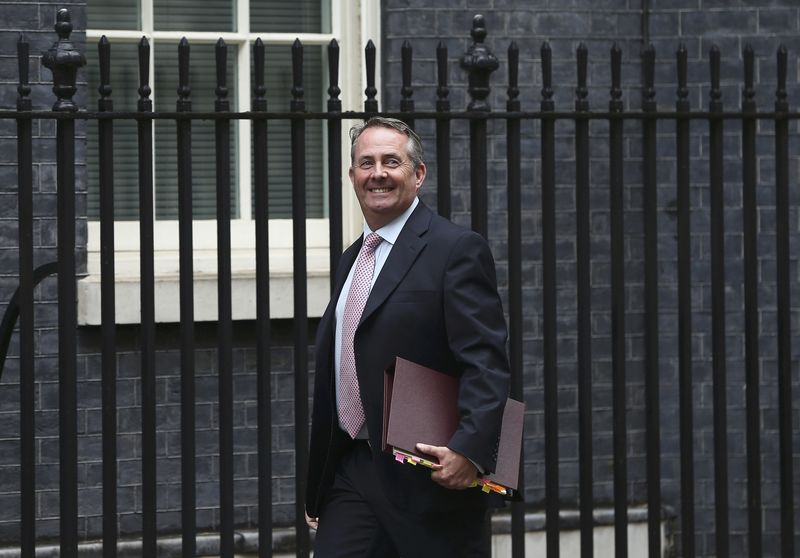LONDON (Reuters) - Britain's exit from the European Union could be delayed until at least late 2019 because the government was too "chaotic" to start the two-year process early next year, the Sunday Times reported, citing sources it said were briefed by ministers.
Britain voted to leave the EU on June 23, but views differ over when it should invoke "Article 50", which sets the clock ticking on a two-year deadline to leave the bloc, with some senior politicians calling for a quick departure.
Prime Minister Theresa May, who campaigned for Britain to remain in the EU and leads a cabinet of ministers from either side of the debate, has said she will not trigger Brexit talks this year as Britain needs time to prepare.
But British government ministers have warned senior figures in the City of London, London's financial district, that Article 50 was unlikely to be triggered early in 2017 because the situation in government was "chaotic", the Sunday Times reported on Sunday.
"Ministers are now thinking the [Article 50] trigger could be delayed until autumn 2017," one source, who had spoken to two senior ministers, told the newspaper.
"They don't have the infrastructure for the people they need to hire. They say they don't even know the right questions to ask when they finally begin bargaining with Europe."
Asked about the reported delay to triggering Article 50, a Number 10 spokeswoman said: "The Prime Minister has been clear that a top priority for this government is to deliver the decision of the British people to leave the EU and make a success of Brexit."
"The PM has set out the government's position on Article 50 and has established a new department dedicated to taking forward the negotiations," she said.
European leaders have taken a firm line on the speed of Britain's exit, with German Chancellor Angela Merkel saying that while it was understandable that Britain would need a few months to figure out its strategy, "nobody wants a long period of limbo".
But behind the scenes, there has been a growing realisation in Europe's capitals that the two-year window for negotiating Brexit is far too short.
Britain created two new government departments to handle Brexit and international trade, led by David Davis and Liam Fox, two prominent "Leave" campaigners in the referendum.
Davis has recruited less than half of the 250 staff he needs for the Brexit department, the Sunday Times said, while Fox has fewer than 100 of the 1,000 trade negotiators he is seeking.
Elections in France in May, and Germany in September, could also push back the timing of Brexit.
Any delay to the process, however, is likely to draw criticism from the pro-leave side of May's Conservative party, with senior members such as John Redwood calling for a quick departure from the bloc.
There was an early sign of tension between the pro-Brexit members of May's cabinet in a report that Fox had clashed with Foreign Secretary Boris Johnson over the remit of his new department.
Fox said economic diplomacy -- policies concerning trade and Britain's economic ties -- should be transferred to his department, according to a letter quoted in the Sunday Telegraph. Johnson had firmly rejected the Fox's demands, the newspaper said.

The spokeswoman said the government did not comment on leaked documents.